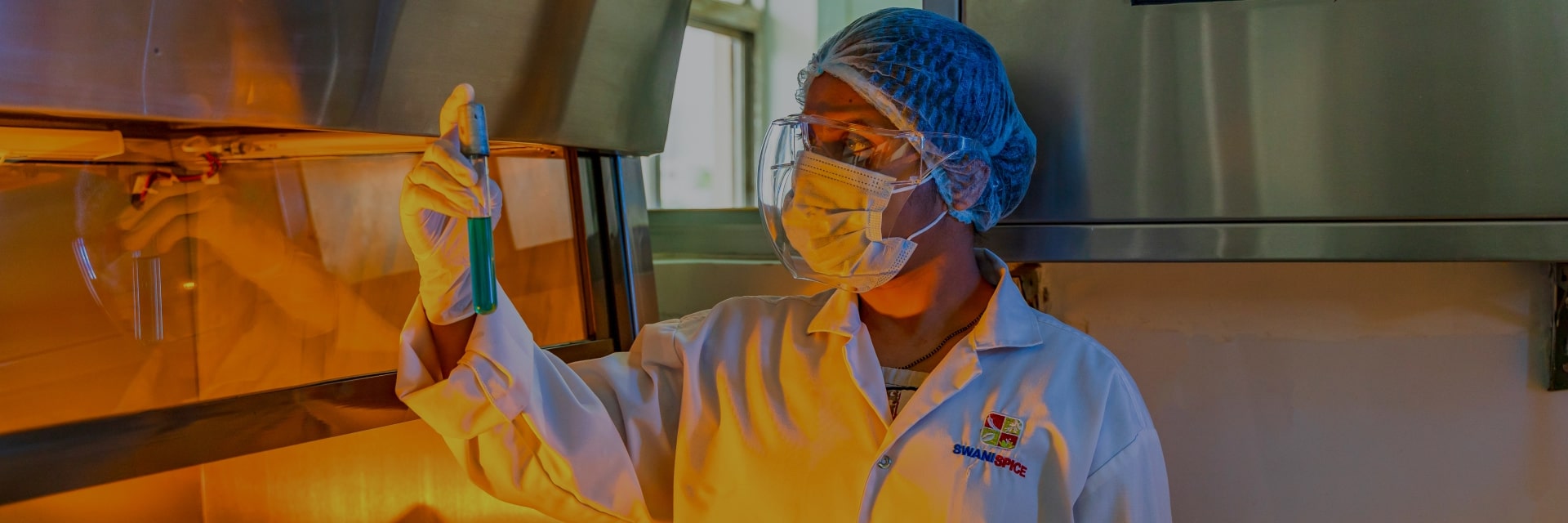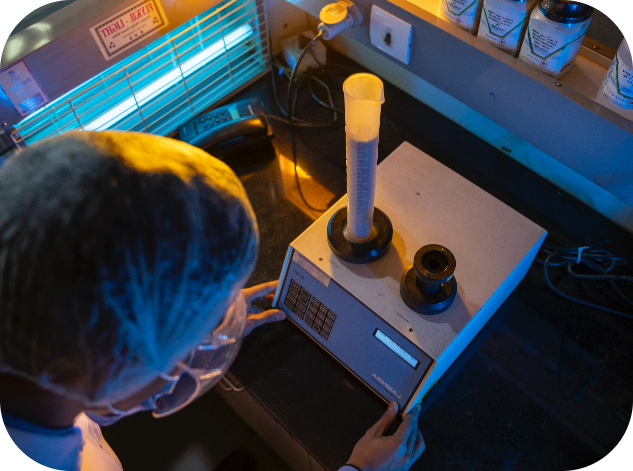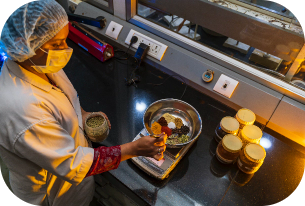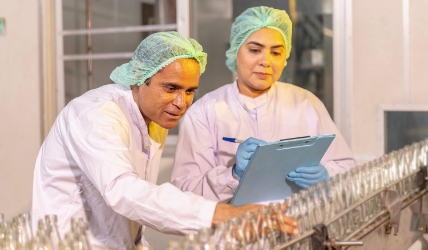

Our lab has been accredited for ISO 17025 since 2014. In 2021 we faced the reaccreditation audit conducted by National Accreditation Board for Testing and Calibration Laboratories (NABL) for ISO 17025:2017 with scope extension. And very proudly we announce that we are now accredited for most of the tests including the key parameters like pesticide residues, allergens and mycotoxins.
In total, the Lab is accredited for 169 pesticide residues, Ochratoxin, Aflatoxin, Pungency, ASTA color value, Curcumin, Piperine. The allergen testing Lab is accredited for quantification of Allergens like Gluten, Sesame, Peanut and Mustard.
The Instrumentation Lab is equipped with advanced LCMSMS and GCMSMS which is used for pesticide and ETO residue testing and these can be used to screen many more of pesticides as and when required. The testing activities can be expanded to various other parameters like Pyrrolizidine alkaloids, Polyaromatic hydrocarbons, various organic solvents in future.
Under Microbiology section all parameters including pathogens are in scope of accreditation.
Key chemical and physical indicators like water activity, total ash, particle size and extraneous matter are also covered under scope.
Besides including almost all test parameters in scope, we have also included multiple methods for many of our test parameters which include ISO and BAM methods.
Expansion in terms of categories has also been a highlight of this year’s accreditation.
Certified
Pesticides
Considering Allergen Awareness amongst people around the world, Swani Spice has
taken many proactive steps to provide our customers with safe and allergen-free
products. These include:
1A conscious business decision to discontinue sesame and mustard, which are classified as allergens to avoid adulteration at any point.
2 Since Wheat Pollard is required as a filler in some blends of our product list, the same set of blends were discontinued.
3Thoroughly monitor all raw material that is purchased for presence of any allergen contamination from the supply chain.
4We are also continuously working to pass on the knowledge on allergens to our farmers and suppliers via the Agri team.
5At our in-house Allergen Testing Lab, we employ ELISA technique to test important allergens such as Peanut, Sesame, Gluten, Mustard and Soya.
6In order to maintain proper hygiene checks and to avoid the possibility of foodborne illness, stringent product changes are implemented to prevent contamination from the supply chain at any given time.
7Third party Lab verification of allergens such as celery by PCR test at a specified frequency.
The Quality Control Team is always collectively working with Quality Assurance, Hygiene and Food Safety Team.
We are always striving to adhere to Good Manufacturing & Hygiene Practices. The No Glass & Jewellery Policy and other quality related policies have always been strictly complied by the team. We follow a daily calibration system to keep a check on various modes of adulteration by working with metal detectors, magnets, heat sealing machines, weighing machines, etc; thus, delivering a superior quality product to the end consumer.




Besides other certifications, Our Processing Units are also
BRC Food Ver. 8 thus driving the team to be on edge and streamlined.
A dedicated team of Systems Experts are also employed with us to monitor all and
any mandatory requirements for documentation, training and liaison for certifications.
At Swani Spice, we have devised an annual training calendar to cover all key significant
areas of activities wherein, various audit tools are used as well. Carried out on the job floor,
or in a dedicated training area; this training has helped us improve our efficiency and prioritizing your
health above all else. As a part of our backward integration program to ensure good agricultural
practices amongst the farmers, we also provide training at regular intervals to farmers on ground level.